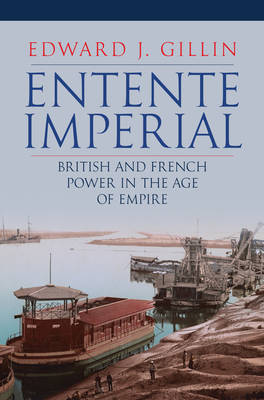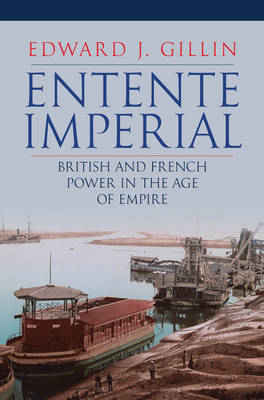
- Retrait gratuit dans votre magasin Club
- 7.000.000 titres dans notre catalogue
- Payer en toute sécurité
- Toujours un magasin près de chez vous
- Retrait gratuit dans votre magasin Club
- 7.000.0000 titres dans notre catalogue
- Payer en toute sécurité
- Toujours un magasin près de chez vous
Entente Imperial
British and French Power in the Age of Empire
Edward J Gillin
Livre relié | Anglais
27,95 €
+ 55 points
Description
Today's arguments over Britain's relationship with Europe and its place in the world are shaped by its imperial history. The nineteenth century is too often invoked as moment where, thanks to unrivalled industry and an expansive empire, Britain alone exerted global dominance, without the need for European collaboration. This book shows how this is fundamentally wrong by exploring British collaboration with France between 1848 and 1914. Entente Imperial redefines our understanding of Britain's role in the world in the age of empire. In the 1850s, the very moment at which British power climaxed, the author shows how Britain worked alongside its only European rival, France, to exert unprecedented influence throughout the world. Together, France and Britain went to war in Russia and China, established the world's first free-trade treaty, considered shared measurements for trade and the arts, and initiated the Suez Canal's construction. This was a profound moment of Anglo-French integration and European hegemony, but from 1860 until 1904 the two nations drifted apart. As a result of this growing isolation, Britain's influence in Europe declined, as did France's throughout the world. By the twentieth century, Britain and France were compelled to work together in the face of the growing military threat of Germany, and the world was on the edge of war. Despite its world-leading industry and a colossal empire, British influence was contingent on its ability to cooperate with its great rival. This book radically revises Britain's imperial history at a moment when Britain's place in the modern world has never been more uncertain.
Spécifications
Parties prenantes
- Auteur(s) :
- Editeur:
Contenu
- Nombre de pages :
- 288
- Langue:
- Anglais
Caractéristiques
- EAN:
- 9781398102897
- Date de parution :
- 15-02-22
- Format:
- Livre relié
- Format numérique:
- Genaaid
- Dimensions :
- 164 mm x 237 mm
- Poids :
- 553 g

Les avis
Nous publions uniquement les avis qui respectent les conditions requises. Consultez nos conditions pour les avis.






